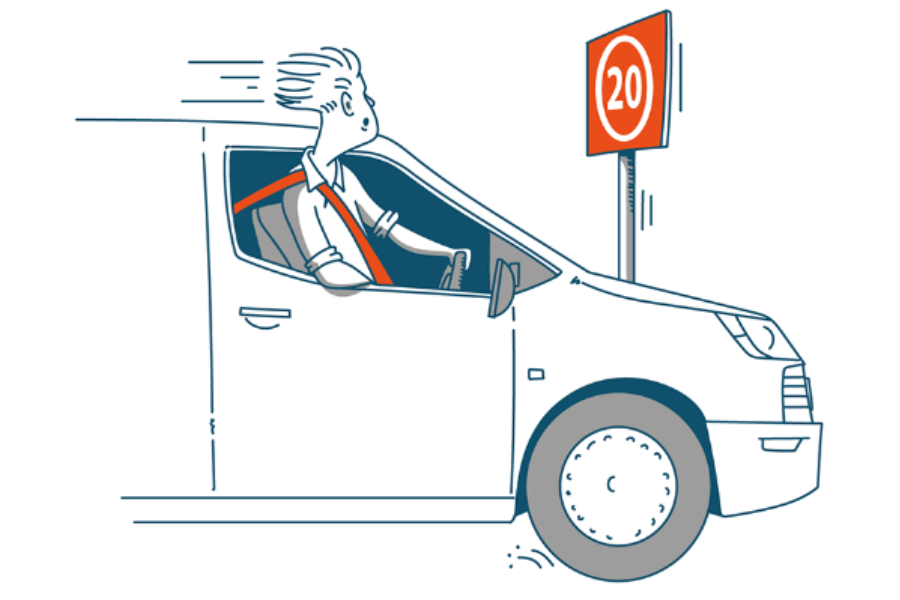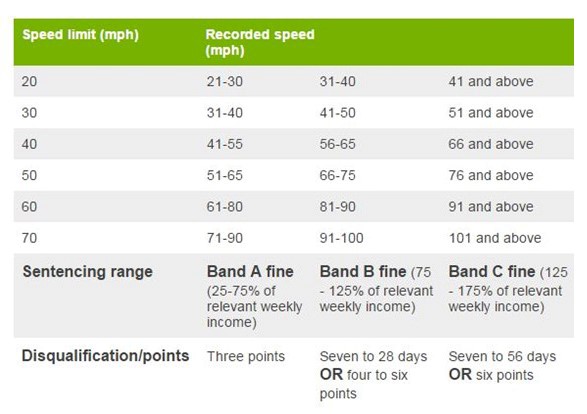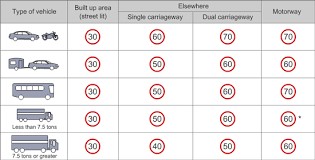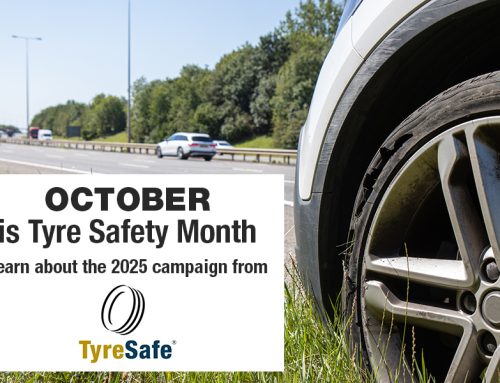UPdated
Updated January 2026
This month’s legal update on speed, for those who manage drivers, comes to us from Mike Hayward of Woodfines Solicitors.
Speed – your fleet, your legal responsibilities
Speed limits are legal and mandatory and not a target.
Drivers should never exceed the speed limits set and should also have regard for road conditions, adapting their driving to those conditions. Braking distances are greater, for instance, in wet and icy conditions, and you would not drive on a national speed limit carriageway at the maximum of 60mph in fog, for example.
Your drivers – points don’t mean prizes!
For those old enough to remember Play Your Cards Right with Bruce Forsyth, his famous catchphrase was “points mean prizes”, but the opposite is certainly true in road law.
The minimum penalty points you can get if subject to enforcement is three. That may be by way of a fixed penalty together with a fine of £100, or it can increase, subject to the level of speed that you are caught driving at. In extreme cases of excess speed, you can face instant disqualification by a Magistrates’ Court. A table setting out the speed enforcement punishment levels, as issued by the Sentencing Guidelines Council, is below:
Speed Limits – driving for work
Do not be fooled by these categories. They are merely guidelines -and if high speed coupled with any other poor driving is observed by the police and supported by the courts, then failing to accede to the speed limit and driving in a careless way could lead to allegations of careless and/or dangerous driving.
So far as speed limits are concerned, any driver policy or handbook for those you employ should contain an absolute direction that no driver of your fleet should exceed the limit. There is no excuse for doing so.
As a fleet manager, you should play your part by not issuing routes and jobs to your drivers where they are likely to be placed under significant time pressure, meaning that there is a risk of them having to exceed limits. It must be made clear to drivers that they should not seek to break speed limits or, indeed, any other road law to comply with their role. As an aside, it is all too common to see delivery drivers being paid per delivery, but, as fleet managers, you should ensure that there are no incentives in place to cause your drivers to exceed the speed limit.
Different vehicles – different speed limits.
There are common misconceptions about what vehicle types can do and what speed is in accordance with the limits. Your drivers, whether driving in their private life or vocationally, are under obligation to ensure that they adhere to road law. It is certainly no excuse for a driver to state that they have moved to driving a van and did not know that there is, for certain roads, a lower speed limit. The categories are set out below:
Many vehicles are now fitted with speed limiters which can play their part in ensuring adherence to the road laws, but it is about driver behaviour and ensuring that those laws are adhered to.
Drivers are faced with potentially 3 penalty points for a speed limit infringement. If a driver reaches 12 penalty points within three years, they will be summonsed to a Magistrates’ Court to face automatic disqualification under the totting up regime.
A minimum six-month disqualification will be imposed. Whilst there is a legal argument that can be made that somebody will suffer exceptional hardship if disqualified, the bar has risen high in the Magistrates’ Court over the years for that to be established. Drivers can expect to be disqualified for six months if they hit twelve points within those three years. The message therefore is to absolutely comply with those limits and to alter behaviour to do so.
Like any analytics system, it is only as good as those that monitor it and take action where breaches are revealed.
Careful and considerate driving reduces the risk of incident, accident and enforcement. In turn, that contributes to a healthy insurance image for a business and individual, and any fleet manager or employer setting out their expectations of their drivers to adhere to speed limits is demonstration of that employer’s commitment to the welfare of their staff.
So, what is the point of speed limits? The point is to avoid getting points in the first place.
Mike Hayward is a transport, motoring and health & safety regulatory solicitor from Woodfines solicitors.
He and his team represent individuals and corporate clients, helping them to navigate road and compliance law.








